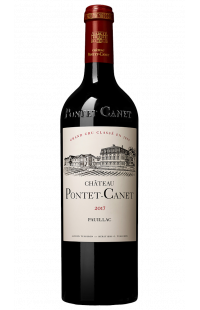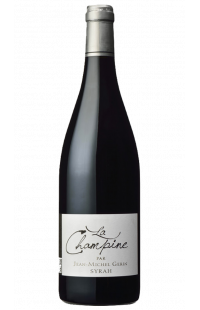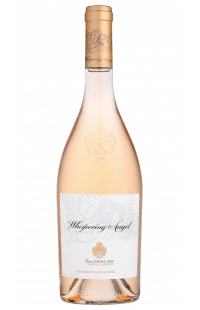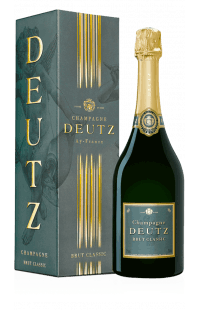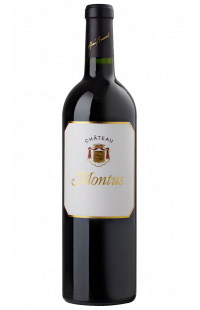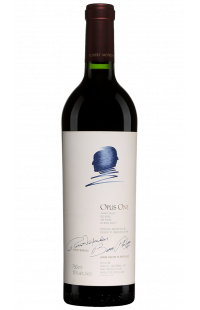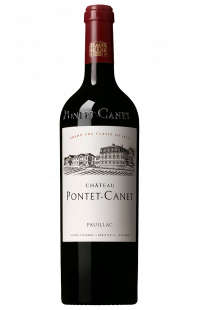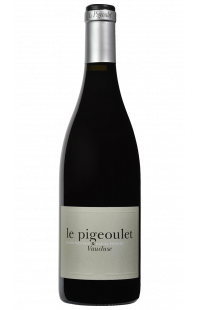- Menu
- All our wines
- Bordeaux
-
Rhône
-
Burgundy
-
Rosés Wines
-
Champagne
- France
-
World
- PRIMEURS
- ORGANIC WINES
Vaucluse wines
The Wines of Vaucluse: A Viticultural Treasure of France
Introduction
Vaucluse, a department located in the Provence-Alpes-Côte d'Azur region, is a jewel of French viticulture. Renowned for its picturesque landscapes and sunny climate, it is home to some of the country's most prestigious appellations and most remarkable wines. With a rich winemaking history and ideal climatic conditions, Vaucluse is a favored land for wine enthusiasts and oenology experts. This article explores the specifics of Vaucluse wines, highlighting the four major appellations—Châteauneuf-du-Pape, Gigondas, Vacqueyras, and Beaumes-de-Venise—as well as the diversity and quality of wines produced in this region.
Viticultural History of Vaucluse
A History Rooted in Tradition
Viticulture in Vaucluse dates back to Roman times, when vineyards were already cultivated to produce wines for local consumption and export. Over the centuries, winemaking techniques have been perfected, and Vaucluse wines have gained renown. The viticultural history of Vaucluse is marked by the passion of its winemakers and a commitment to tradition, while also integrating innovations to improve wine quality.
Appellations of Controlled Origin (AOC)
The introduction of Appellations of Controlled Origin (AOC) in the 20th century allowed for the protection and promotion of Vaucluse wines. The four major appellations of the department—Châteauneuf-du-Pape, Gigondas, Vacqueyras, and Beaumes-de-Venise—are recognized for their exceptional quality and unique character. Each of these appellations has its own specificities, reflecting the terroir and the expertise of the winemakers.
The Major Appellations of Vaucluse
Châteauneuf-du-Pape
Châteauneuf-du-Pape is undoubtedly the most famous appellation of Vaucluse, known worldwide for its powerful and complex wines. Located on the left bank of the Rhône, the appellation covers about 3,200 hectares and produces both red and white wines. The varied soils, composed of rolled pebbles, sand, clay, and limestone, contribute a remarkable aromatic richness and structure to the wines.
Châteauneuf-du-Pape wines are primarily made from thirteen authorized grape varieties, including Grenache, Syrah, and Mourvèdre. The reds are renowned for their depth, aromas of red and black fruits, spices, and aging potential. The whites, though less known, offer beautiful freshness with floral and fruity notes.
Gigondas
The Gigondas appellation, located near the Dentelles de Montmirail, is famous for its robust and full-bodied red wines. The terroir of Gigondas is characterized by clay-limestone soils and a dry, sunny Mediterranean climate—ideal for vine cultivation. The vineyards cover about 1,200 hectares, producing red wines and some rosés.
Grenache is the dominant grape variety, often complemented by Syrah and Mourvèdre. Gigondas wines are distinguished by their power, aromas of ripe fruits, garrigue, and spices, as well as their ability to age. The rosés, though rare, are also appreciated for their freshness and elegance.
Vacqueyras
Vacqueyras, another notable appellation of Vaucluse, is also located at the foot of the Dentelles de Montmirail. The vineyards of Vacqueyras cover about 1,400 hectares, producing mainly red wines, but also whites and rosés. The soils are varied, with a predominance of stony terraces and red sands.
Grenache, Syrah, and Mourvèdre are the main grape varieties of Vacqueyras reds, characterized by their aromatic richness, tannic structure, and notes of dark fruits, spices, and leather. The whites and rosés are also recognized for their freshness and delicate aromas of flowers and fruits.
Beaumes-de-Venise
The Beaumes-de-Venise appellation is famous for its sweet natural wines, the Muscats de Beaumes-de-Venise, as well as for its red wines. The vineyards cover about 500 hectares, benefiting from a warm and dry Mediterranean climate and limestone and marl soils.
Muscat Blanc à Petits Grains is the main grape variety for the sweet natural wines, offering intense aromas of exotic fruits, citrus, and flowers. The red wines, primarily made from Grenache and Syrah, are appreciated for their roundness, aromas of red fruits and spices, and finesse.
The Climate and Terroir of Vaucluse
An Ideal Mediterranean Climate
Vaucluse benefits from a Mediterranean climate characterized by hot, dry summers, mild winters, and moderate rainfall. This climate is ideal for viticulture, allowing optimal grape ripening and concentration of aromas. The mistral, a strong, dry wind from the north, also plays a crucial role in cleansing the air, reducing the risk of vine diseases, and contributing to the quality of the grapes.
Soil Diversity
The soils of Vaucluse are extremely varied, ranging from the rolled pebbles of Châteauneuf-du-Pape to the limestone and marls of the Dentelles de Montmirail. This geological diversity influences the typicity of the wines, bringing a unique complexity and aromatic richness to each appellation. Winemakers leverage these terroirs to produce wines that fully express the character of each plot.
IGP Vaucluse Wines
A Sign of Quality and Creativity
In addition to the Appellations of Controlled Origin, Vaucluse also produces wines under the Protected Geographical Indication (IGP) Vaucluse. This classification allows winemakers greater freedom in crafting their wines while guaranteeing a high level of quality. IGP Vaucluse wines stand out for their diversity and originality, reflecting the creativity and expertise of the winemakers.
A Palette of Flavors
IGP Vaucluse wines cover a wide range of styles—from powerful reds to fresh and aromatic whites, as well as elegant rosés and sweet natural wines. This diversity allows wine lovers to discover new flavors and journey through the different terroirs of Vaucluse. The winemakers, heirs to a tradition of excellence, continue to innovate and surprise with the quality and originality of their cuvées.
The Winemakers of Vaucluse
A Unique Expertise
The winemakers of Vaucluse are the guardians of ancestral know-how, passed down from generation to generation. Their passion for the vine and commitment to quality are reflected in every bottle produced. Cultivation and winemaking methods often adhere to sustainable and organic agriculture principles, contributing to environmental preservation and wine quality.
Talents and Personalities
Vaucluse is also the birthplace of many talented and visionary winemakers who have successfully combined tradition and innovation to create exceptional wines. These winemakers, true artists of the vine, bring their personal touch to each cuvée, making every tasting a unique experience. Their wines, reflecting their passion and dedication, are testaments to the extraordinary potential of the Vaucluse terroir.
Tasting Vaucluse Wines
A Sensory Experience
Tasting Vaucluse wines is a true sensory experience, where each wine tells a story and reveals the character of its terroir. Aromas, flavors, and textures combine to offer a rich and varied palette of sensations. Whether it's a powerful Châteauneuf-du-Pape, a spicy Gigondas, an elegant Vacqueyras, or a sweet and fruity Muscat de Beaumes-de-Venise, each wine invites a gustatory journey through the landscapes of Vaucluse.
Food and Wine Pairings
Vaucluse wines lend themselves beautifully to food and wine pairings, enhancing Provençal cuisine and beyond. Robust reds pair perfectly with grilled meats, game, and saucy dishes. Fresh and aromatic whites complement seafood, fish, and goat cheeses. Rosés are ideal for summer meals, salads, and light dishes. As for sweet natural wines, they are perfect as an aperitif, with desserts, or blue cheeses.
Conclusion
Vaucluse wines reflect an exceptional terroir, favorable climate, and unique viticultural expertise. Rich in diversity and character, they captivate wine enthusiasts worldwide. Major appellations like Châteauneuf-du-Pape, Gigondas, Vacqueyras, and Beaumes-de-Venise, as well as IGP Vaucluse wines, testify to the richness and quality of the department's wine production. Through their wines, Vaucluse winemakers perpetuate a tradition of excellence while exploring new avenues of creativity. For connoisseurs and novices alike, discovering Vaucluse wines is an invitation to savor the soul of this exceptional wine region.
